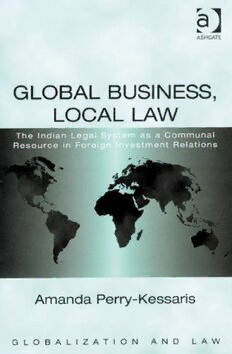
Global Business, Local Law (Globalization and Law) PDF
199 Pages·2008·0.839 MB·English
Most books are stored in the elastic cloud where traffic is expensive. For this reason, we have a limit on daily download.
Preview Global Business, Local Law (Globalization and Law)
Description:
This volume establishes a theoretical framework for exploring the role of host state legal systems (courts and bureaucracies) in mediating relations between foreign investment, civil society and government actors. It then demonstrates the application of that framework in the context of the south Indian city of Bengaluru (formerly Bangalore). Drawing on the 'law-and-community' approach of Roger Cotterrell, the volume identifies three mechanisms through which law might, in theory, ensure that social relations are productive: by expressing any mutual trust which may hold actors together, by ensuring that actors participate fully in social life; and, by coordinating the differences that hold actors apart.Empirical data reveals that each of these legal mechanisms is at work in Bengaluru. However, their operation is limited and skewed by the extent to which actors use, abuse and/or avoid them. Furthermore, these legal mechanisms are being eroded as a direct result of the World Bank's 'investment climate' discourse, which privileges the interests and values of foreign investors over those of other actors.
See more
The list of books you might like
Most books are stored in the elastic cloud where traffic is expensive. For this reason, we have a limit on daily download.
